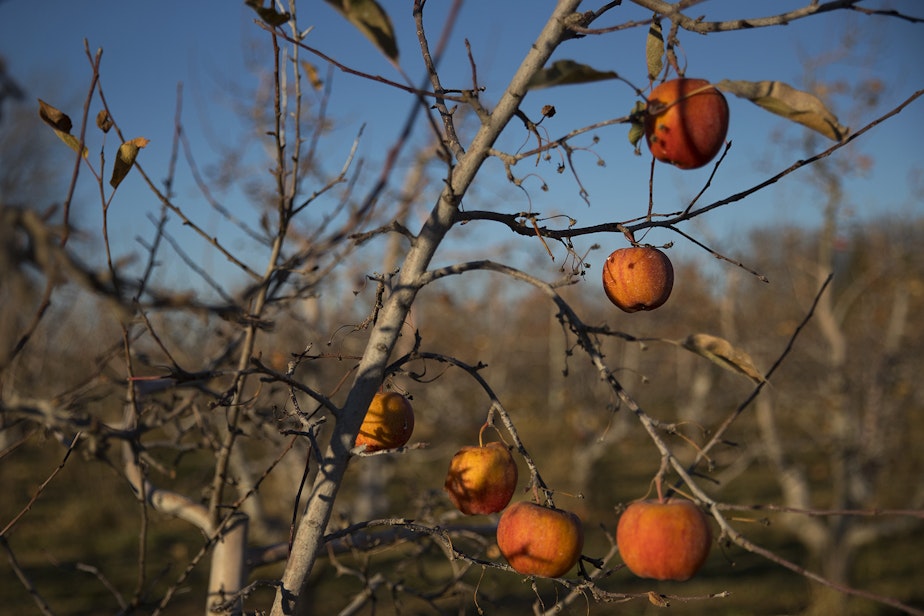EPA to ban neurotoxic pesticide sprayed on NW apples and Christmas trees

The Environmental Protection Agency is partially banning a pesticide that’s been linked to neurological damage in children and fetuses. For decades, chlorpyrifos has been widely sprayed on apples, pears, Christmas trees and other crops in the Pacific Northwest.
Farm worker advocates have pressured the EPA to ban the pesticide chlorpyrifos because, when children and developing fetuses are exposed, it can cause lower IQs, higher levels of ADHD, and poor impulse control.
Farmers will no longer be allowed to spray the pesticide on any food crops starting in six months, but it'll still be allowed on Christmas trees and other non-food crops.
“This is a pretty big win for consumers,” said Elizabeth Strater, with United Farm Workers. “But why is it acceptable to continue to expose the farm workers? It feels a little like environmental racism.”
As KUOW has reported, the battle over the use of chlorpyrifos in Washington's orchards and vineyards has sparked debate among Pacific Northwest farmers and scientists.
Sponsored
In 2016, Washington farmers used more than 200,000 pounds of chlorpyrifos on their orchards and vineyards, and many consider it a crucial tool in protecting crops. Some growers resisted abandoning chlorpyrifos because of its low cost and effectiveness in fighting invasive pests like aphids.
But the chemical has a record of causing serious health issues for the people that come in contact with it. Chlorpyrifos is especially dangerous for children, but farm workers and neighbors close to orchards have also reported symptoms like nausea, abdominal cramps, diarrhea, coughing, and wheezing. KUOW shared the story of one family who got sick after chlorpyrifos was sprayed next to their house back in 2017.
This latest decision from the EPA follows an April ruling from the Ninth Circuit Court of Appeals that ordered the agency to halt the use of chlorpyrifos unless it could provide proof of its safety. Washington State Attorney General Bob Ferguson joined several other attorneys general in the federal lawsuit.
This also isn't the first time the EPA limited the use of chlorpyrifos. In 2000, the agency decided to remove the chemical from household products.
Strater says UFW will continue to advocate for a total ban on chlorpyrifos and other pesticides in the same chemical class.




